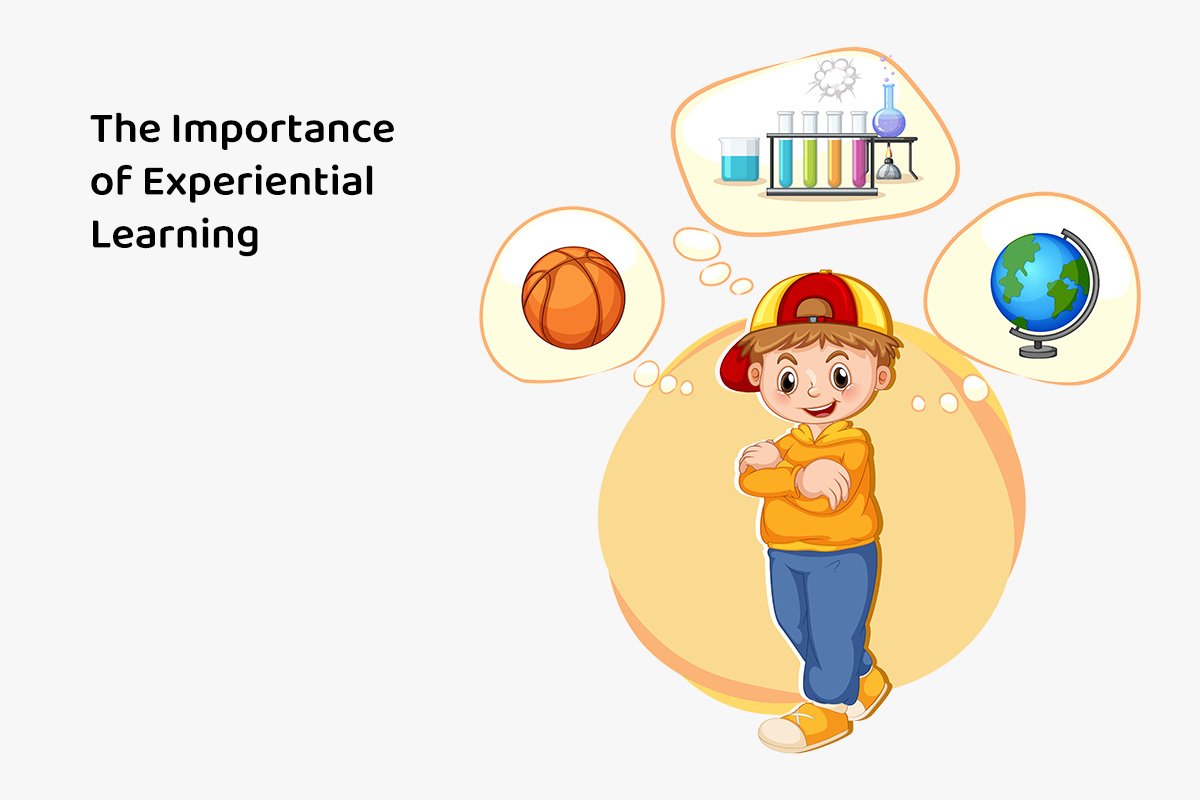The Importance of Experiential Learning
Evolution of Learning Approaches
The evolution of learning approaches in India has seen a significant transformation over the years, influenced by cultural, technological, and educational shifts. Here’s a glimpse of this evolution:
1. Traditional Gurukul System: Historically, India’s education was rooted in the Gurukul system, emphasizing personalized learning, holistic education, and close student-teacher relationships.
2. Colonial Influence: The British colonial era introduced a more standardized and formal education system, focusing on English language instruction and institutionalized schooling.
3. Post-Independence Reforms: Post-independence, India focused on expanding educational access through policies like the Sarva Shiksha Abhiyan (Education for All) and focused on building a robust educational infrastructure.
4. Technology Integration: The 21st century witnessed a surge in technology integration in education. Digital platforms, e-learning tools, and online resources became prevalent, enabling wider access to education across the country.
5. Shift towards Skill-Based Learning: There’s been a growing emphasis on skill-based education to align with the demands of a global economy, fostering entrepreneurship, innovation, and vocational training alongside traditional academics.
6. Innovation in Pedagogy: There’s a gradual shift from rote learning to more experiential, inquiry-based, and student-centered learning approaches. Project-based learning, hands-on experiences, and STEAM (Science, Technology, Engineering, Arts, and Mathematics) education have gained prominence.
7. Focus on Inclusivity and Diversity: Efforts have been made to make education more inclusive, addressing gender disparities, promoting education for marginalized communities, and accommodating diverse learning needs.
8. Hybrid and Blended Learning: The COVID-19 pandemic accelerated the adoption of hybrid and blended learning models, combining in-person teaching with online resources, reshaping the way education is delivered and accessed.
9. Policy Reforms: Recent educational policy reforms like the National Education Policy (NEP) 2020 have aimed at restructuring the entire education system, emphasizing flexibility, multidisciplinary learning, and the integration of technology.
10. Lifelong Learning and Upskilling: There’s a growing recognition of the importance of lifelong learning and continuous upskilling. Initiatives like online courses, MOOCs (Massive Open Online Courses), and skill development programs cater to learners beyond traditional schooling.
The evolution of learning approaches in India reflects a transition from conventional to more dynamic, inclusive, and technology-driven educational paradigms. Embracing experiential learning, innovation, and adaptability remains crucial in preparing students for the complexities of the modern world.
Importance of Experiential Learning in Modern Education
Experiential learning holds immense importance in modern education due to its ability to cater to the evolving needs of learners and prepare them for the complexities of the contemporary world:
Engagement and Active Learning: Experiential learning actively engages students in the learning process, fostering deeper engagement and participation compared to passive learning methods.
Application of Knowledge: It allows students to apply theoretical knowledge in practical, real-world scenarios, enabling a deeper understanding of concepts and their relevance.
Critical Thinking and Problem-Solving: It promotes critical thinking skills by encouraging students to analyze situations, make decisions, and solve problems within authentic contexts.
Skill Development: Experiential learning nurtures a wide array of skills, including communication, collaboration, creativity, adaptability, and leadership, vital for success in the modern workforce.
Retention and Long-Term Learning: Hands-on experiences create lasting memories, leading to better retention of information and skills compared to traditional classroom learning.
Personalized Learning: It allows for personalized learning experiences, catering to diverse learning styles and individual needs, promoting a more inclusive educational environment.
Preparation for the Future: In a rapidly changing world, experiential learning equips students with the ability to adapt, innovate, and embrace lifelong learning, preparing them for future challenges.
Cultural and Global Understanding: Experiential learning activities often involve interaction with diverse perspectives, fostering cultural awareness, empathy, and a global outlook.
Enhanced Motivation and Confidence: Success in hands-on experiences boosts students’ confidence, motivation, and self-esteem, encouraging them to take on new challenges and explore further learning opportunities.
Alignment with 21st-century Skills: It aligns with the demands of the 21st-century workforce, emphasizing skills like critical thinking, creativity, adaptability, and collaboration, which are highly valued in today’s job market.
In essence, experiential learning is instrumental in creating well-rounded individuals capable of not just acquiring knowledge but also applying it effectively in real-life situations. Its integration into modern education enriches the learning experience, preparing students to thrive in an ever-evolving world.
Conclusion
Experiential learning stands as a cornerstone of modern education, offering invaluable opportunities for students to engage, apply, and internalize knowledge in profound ways.
As education continually adapts to meet the demands of a rapidly changing world, the significance of experiential learning remains unparalleled. Its ability to foster critical thinking, problem-solving, and a diverse skill set equips learners with the tools necessary to navigate the complexities of the 21st century.
By emphasizing active engagement, practical application, and the development of crucial skills, experiential learning transcends traditional teaching methods. It not only enhances academic achievement but also cultivates lifelong learners who are adaptable, innovative, and prepared to thrive in an ever-evolving global landscape.
As educators and institutions continue to embrace the power of experiential learning, they pave the way for a more engaging, inclusive, and effective educational experience, shaping individuals who are not just knowledgeable but also capable of making meaningful contributions to society.
“Join us in revolutionizing education! Experience the power of learning beyond textbooks with Sakal NIE. Discover our engaging, experiential content tailored to inspire young minds. Elevate your classroom experience today! Visit https://www.sakalnie.in/ for innovative resources and to partner with us in shaping a brighter future for education.”





Leave a Reply